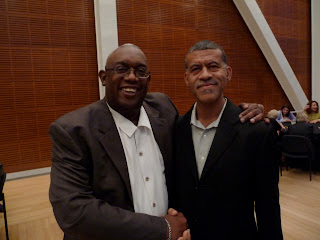Hey, this is a joke, right?
I know CBS, comedy superproducer Chuck Lorre – and I – sure hope so. Many jokes, in fact.
My ears did a double-take when I first heard it: among the shining lights of the network's COVID-compromised 2020 fall TV season, the first new sitcom to arrive in the vaunted CBS prime-time lineup, is a show about kidney failure and organ donation.
Sounds like a laugh riot, huh?
B Positive, starring Thomas Middleditch and Annaleigh Ashford, premieres at 8:30/7:30 Central Thursday, Nov. 5, comfortably nestled between two of Lorre's greatest hits, the return of Young Sheldon at 8 and the eighth-season return of Mom – sans Anna Faris – at 9. Sort of a Lorre Lane, if you will. Few comedies could have a more secure launch pad.
As a kidney donor recipient myself (nine years and going strong, thanks), advocate for organ donation and former renal patient representative for the State of Illinois, I was eager, if a bit apprehensive, to see B Positive. I tracked down the CBS media representative for the series in Los Angeles – I'm the former TV critic for The Detroit News and Detroit Metro Times, among other publications – and asked to review the pilot episode. It isn't available, I was told three times, and who do you write for again?
However, as I go online now and see the pilot reviewed by heavy hitters like The Washington Post and The Wall Street Journal, I see the show was available...just not for me. But I am undaunted! I guess what CBS and most other networks may not realize is, in their fervor to promote new shows by offering online "sneak peeks" and promotional clips, you can nearly watch an entire pilot episode in bits and pieces.
Which I did. So there, CBS media lady.
Now, B Positive has some, well, positives going for it. Lorre is the sitcom Midas of his era, and anybody who can mine years of laughter out of fat people in love (Mike & Molly), alcoholics in recovery (Mom) and a pack of insufferable genius nerds (The Big Bang Theory) has to be given benefit of the doubt with this delicate subject matter.
Marco Pennette, the creator and executive producer, Lorre's creative teammate and writer of the first episode, received a successful kidney transplant himself in 2013 so he's got first-hand memories. And Middleditch, fresh off six seasons and an Emmy nomination for the HBO series Silicon Valley, was said to be the hottest property in Hollywood this pilot season.
He stars as Drew, a slightly neurotic therapist and recently divorced dad who gets the news no one wants to hear: his kidneys are headed on a permanent vacation and he'll need a transplant, fast. "Start with family," his doctor advises. "They're usually the best match."
"Oh, great," Drew moans. "A Republican kidney."
Instead, he has a chance reunion with Gina, a former high school classmate played by Ashford, a Tony Award winner on Broadway whom you may remember from Showtime's Masters of Sex. Gina is a boozy, flighty, mildly annoying party girl – she remembers Drew as "the one guy I didn't hook up with in high school" – who offers him one of her kidneys almost on a whim. However, she's got to remain clean and sober for at least three months to donate, and that's one portal where the laughs pour in.
 |
| Transplant Pals. (by Pamela Littky, Warner Bros.) |
Drew and Gina have kind of an oddball but engaging chemistry, not unlike any two characters on Big Bang, and if you pay close attention you will see a lot of old favorites on B Positive. The delightful Sara Rue (Popular, frequent Big Bang guest) is Drew's ex-wife, and look for the immortal Linda Lavin – yes, that Linda Lavin, Alice herself – as one of the seniors on the minibus Gina drives for a living.
Is B Positive funny? I laughed some, especially at a surprisingly broad slapstick scene on Gina's minibus, but laughter is the aural equivalent of beauty: in the ear of the behearer. Here's what I'm concerned about:
How long can they let Drew suffer and deteriorate before his transplant? A full season, or longer? As anyone on dialysis can tell you, the waiting is the hardest part.
Will they let the audience know that organ donation is not a frivolous, spur-of-the-moment decision, but one that should be carefully considered and discussed with family, friends and doctors? Giving up a body part, even for the best of reasons, is serious stuff.
Will they stress that Drew and Gina need to prepare themselves, both physically and emotionally, for the transplant and that it is major surgery?
Will someone let Gina know that some nephrologists (kidney specialists) advise against young women of child-bearing age donating a kidney because it may lead to higher risk of gestational hypertension and preeclampsia?
Maybe I'm overreacting. Perhaps I'm too close to the subject matter and need to let go and trust fellow kidney recipient Pennette will do the right thing. However, to my knowledge this is the first sitcom ever to deal with kidney donation and transplantation, and there may be a reason for that.
Hey, if the show increases the conversation about organ donation and gets more people considering the option, that can't be bad. In terms of the show itself, however, for now B Positive deserves no more than a B-minus.




















